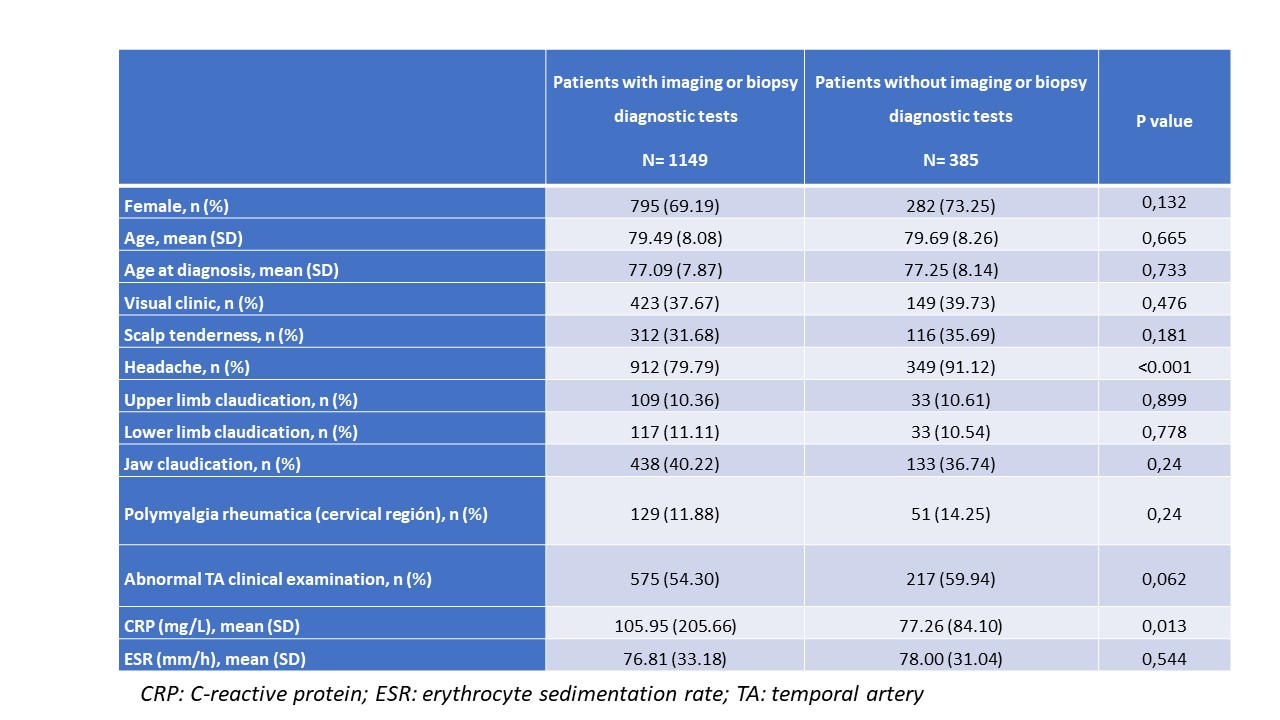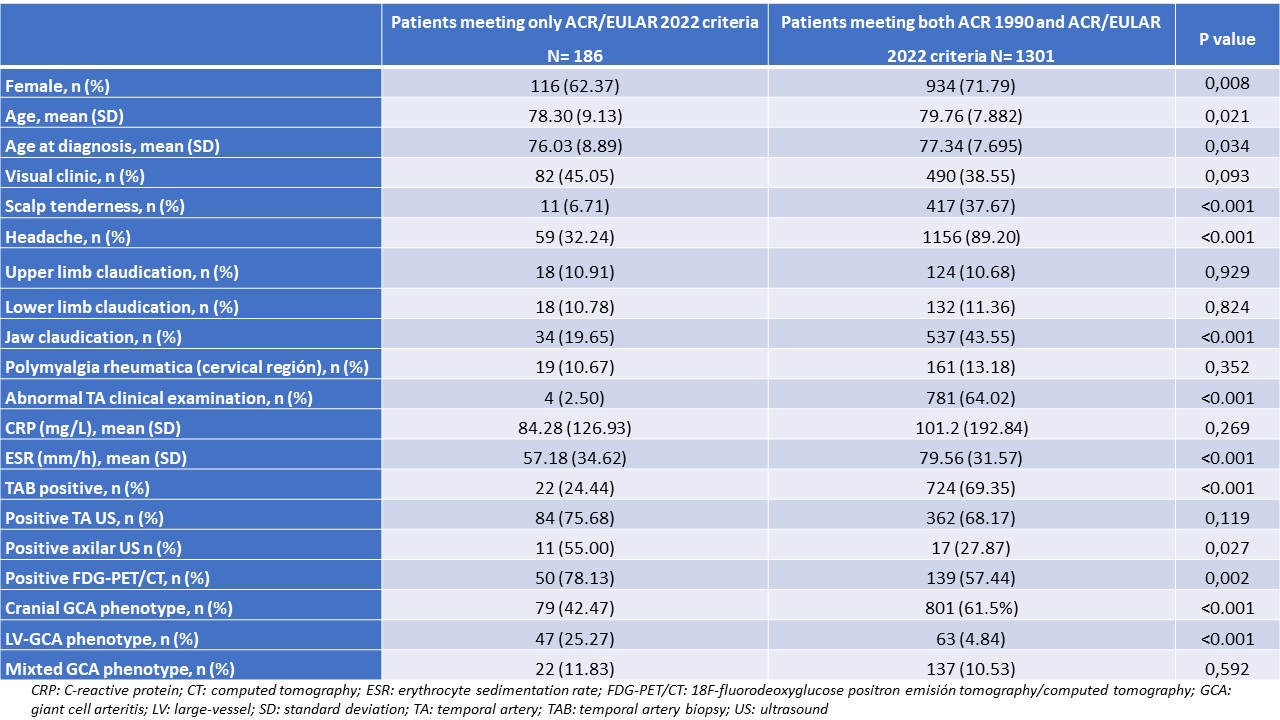Session Information
Date: Sunday, November 17, 2024
Title: Vasculitis – Non-ANCA-Associated & Related Disorders Poster II
Session Type: Poster Session B
Session Time: 10:30AM-12:30PM
Background/Purpose: The diagnosis of giant cell arteritis (GCA) has been guided for years by the ACR 1990 classification criteria but the emergence of the image has changed the diagnosis of the disease and has motivated the appearance of the new ACR/EULAR 2022 criteria the new ACR/EULAR 2022 criteria. The main objective of this analysis was to compare de performance of the new ACR/EULAR criteria in a big cohort of patients with the diagnosis of GCA before the publication and its comparation with the previous ACR 1990 criteria.
Methods: ARTESER is a multicenter observational longitudinal Registry, based on a review of the electronic health records of all patients diagnosed with GCA between June 1st, 2013 and March 29th, 2019. Was conducted in 26 hospitals of the Spanish National Health Service with the support of the Spanish Society of Rheumatology. Consecutive patients fulfilling confirmed diagnosis of GCA, age ≥50 years, and at least one of the following: (a) positive results in an objective diagnostic test such as a temporal artery biopsy and/or imaging technique, including 18F-fluorodeoxyglucose positron emission tomography/computed tomography (FDG-PET/CT), vascular ultrasound or computed tomography angiography/magnetic resonance imaging (MRI) angiography; (b) meeting 3 of the 5 criteria of the 1990 ACR classification criteria; or c) the clinical opinion of the investigator (expert criteria). Data of the patients were described as n and % for qualitative variables and mean and SD for quantitative variables. For the comparison between the criteria, a bivariate analysis was carried out.
Results: Of the 1607 patients included in ARTESER, 73 were excluded due to the absence of the minimum data necessary to evaluate compliance with the criteria. Of the remaining 1535 patients, 1487 met ACR/EULAR 2022 criteria (96.9%) and 1348 met ACR 1990 criteria (87.8%). Most of the patients (1301) met both classification criteria, while 186 met only ACR/EULAR 2022 and 47 met only ACR 1990. Among a sub-analyses carried out, we compared the patients who met the criteria with only clinical and laboratory tests (385 patients) versus those who also had complementary imaging or biopsy diagnostic tests (1149 Patients; Table 1). We did not find clinically relevant differences, with the exception of headache, more prevalent in patients with only clinical and laboratory test. When we compare patients who exclusively meet the ACR 2022 criteria with the rest of the patients, we find that cranial clinical manifestations are less frequent and extracranial diagnostic tests are more frequent (Table 2)
Conclusion: The new ACR/EULAR 2022 criteria captured more patients than the ACR 1990 criteria. The fact that patient inclusion ended before the publication of the 2022 criteria emphasizes the greater classification power of the ACR/EULAR criteria. The new ACR/EULAR classification criteria showed greater sensitivity to detect large vessel involvement than the previous ones.
To cite this abstract in AMA style:
De Miguel E, Hernández-Rodríguez I, Silva-Diaz M, María Belzunegui: J, Moya P, Tortosa-Cabañas M, Navarro V, Calvet J, Casafont-Solé I, Román-Ivorra J, Labrada-Arrabal S, Vasques Rocha: M, L Iñiguez: C, Hernández-Hernández V, Campos-Fernández C, Alcalde Villar: M, Juan-Mas A, Prado-Galbarro F, Calvo I, Sánchez-Martín J, Narvaez-García J, Blanco-Alonso R. ACR/EULAR 2022 Classification Criteria Compared to the ACR 1990 Classification Criteria in the ARTESER Registry of Giant Cell Arteritis [abstract]. Arthritis Rheumatol. 2024; 76 (suppl 9). https://acrabstracts.org/abstract/acr-eular-2022-classification-criteria-compared-to-the-acr-1990-classification-criteria-in-the-arteser-registry-of-giant-cell-arteritis/. Accessed .« Back to ACR Convergence 2024
ACR Meeting Abstracts - https://acrabstracts.org/abstract/acr-eular-2022-classification-criteria-compared-to-the-acr-1990-classification-criteria-in-the-arteser-registry-of-giant-cell-arteritis/


